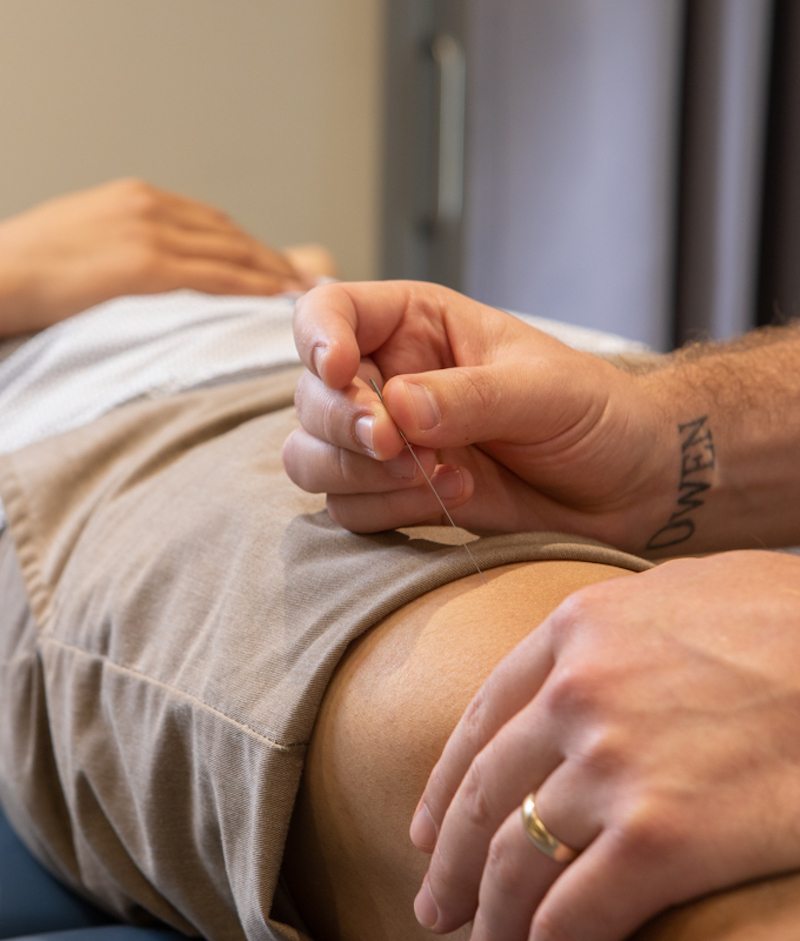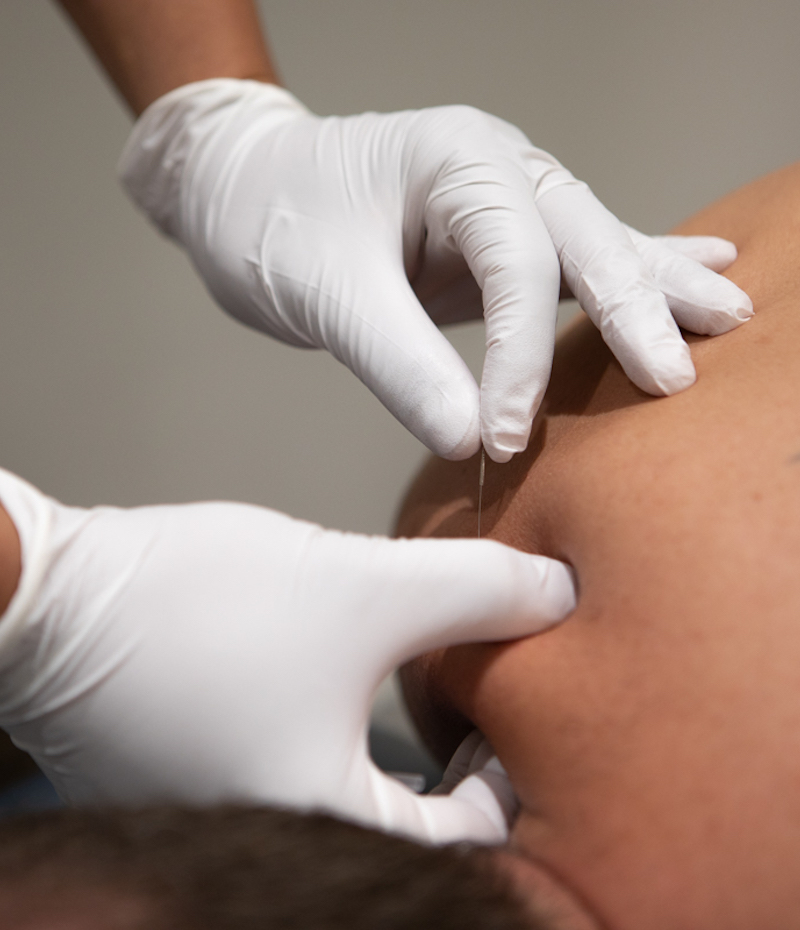Intramuscular Stimulation
Intramuscular Stimulation (IMS) is a dry needling system for diagnosing and treating myofascial pain syndromes.
What is Intramuscular Stimulation (IMS)?
Intramuscular Stimulation (IMS) is a system for diagnosing and treating myofascial pain syndromes. IMS is grounded in Western Medical Science and involves dry needling (using an acupuncture needle) affected muscles of the body. The needle sites can be at the center of tight, tender muscle bands or in the muscle near the spine where a nerve root may have become irritated and sensitive.
What to Expect
During your first appointment, the physiotherapist will discuss the reason for your visit and your health history. Next, an assessment will be completed to determine the cause of your symptoms. The physio will then explain your injury and outline why IMS would be an appropriate form of treatment. The treatment procedure will be described in detail and the therapist will ask for your consent before beginning. Sterile acupuncture grade needles will be applied by the physio. Once the dry needling is complete, manual therapy and mobility drills will be incorporated.

Ready to Book?
If you’re ready to book your appointment online please click the button now.
FAQs
Does IMS hurt?
Pain is a very subjective and individual experience. While some people find IMS or dry needling to be uncomfortable, others do not. Typically, the sensation is described as a deep ache or pressure, followed by a muscle twitch (tightening), then release. The areas of your body that have been needled may feel “heavy” after treatment, but in most cases any pain resolves quickly.
Can I claim my IMS treatment under acupuncture within my extended health benefits plan?
No. IMS is performed by a physiotherapist and is therefore included in the physiotherapy portion of your benefits.
I have had acupuncture before. Is this the same?
In a nutshell… no. While IMS still uses the same needles as acupuncture, both the philosophy and the application are quite different. IMS targets relevant tight muscles that are identified after a detailed assessment as it relates to your injury or impairment. Acupuncture points, on the other hand, already have indications associated with them and can be needled regardless of a biomechanical assessment. Your physiotherapist can discuss with you other differences between IMS and acupuncture.
I recently hurt myself and everything is swollen. Can I still get IMS ?
Typically IMS is not indicated in an area that is inflamed and acutely injured. However, treating the surrounding areas could be of benefit. A physiotherapist will discuss an appropriate treatment plan, possibly including IMS, after a detailed assessment is performed.
Are there any precautions or contraindications to IMS treatment?
As with many medical treatments, there are always considerations of why someone should or shouldn’t get treatment. The most significant reason why someone should avoid IMS treatment is if they aren’t comfortable with being needled. While this may seem like common sense, patient comfort is very important in any treatment. IMS would also not be an appropriate form of treatment in clients with acute infections, poor sensation, are unable to provide informed consent, and clients who are pregnant. Your physiotherapist can discuss with you any concerns you may have about IMS treatment and answer questions about specific injuries or conditions.

Contact Us
179 West 2nd Avenue
Vancouver, BC V5Y 1B8
Tel: 778.819.6565
Email: info@focusphysio.ca
© Focus Physio + Wellness || Privacy Policy
♥ site by cullimore

